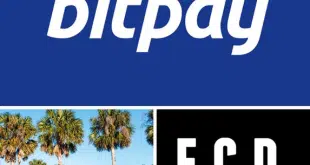What role government regulators should play as financial-technology companies increasingly challenge banks with new services for consumers and merchants is generating more debate in the electronic-payments industry. At a forum Tuesday, regulators said they want to encourage innovation while protecting consumers, but an executive with an online business lender argued for a more streamlined regulatory regime.
“We see innovation, a large amount of innovation, happening from the market outside the traditional banking system, and a lot of these innovations have the potential to really improve consumers’ financial lives,” Dan Quan, a senior advisor to the director at the federal Consumer Financial Protection Bureau, said during a panel session at the Electronic Transactions Association’s Strategic Leadership Forum in Dana Point, Calif. Quan heads the CFPB’s Project Catalyst, an effort to encourage companies to develop innovative financial services, in part by improving regulations.

Dominique-Chantale Alepin, assistant regional director in the Federal Trade Commission’s Western Region, also said the FTC is “very excited” about new financial products that promise more choice and better pricing in payments, loans, and other financial services. “At the same time, we enforce laws that protect consumers, and so we always have that in the back of our mind,” she said.
One of the best things regulators could do to spur financial innovation is not have so many people doing much the same work, according to panelist Sam Taussig, head of global policy and community banking at Kabbage Inc., an Atlanta-based online small-business lender that operates nationwide. Kabbage gets its funding from Celtic Bank, a Utah industrial bank. Thus, Kabbage in one way or another deals with the Federal Deposit Insurance Corp., FTC, CFPB, and the Securities and Exchange Commission, according to Taussig.
“The list goes on,” he said. “It’s somewhat inefficient for us to change our product, or develop new products, with this kind of overlap.” Taussig added that Kabbage is “looking for a single regulator, ideally, that can look at the entirety of the pie. We’re not afraid of regulation by any means.”
The panelists didn’t come to any conclusions as to if or when such a streamlined regulatory environment might be achieved, although Taussig said Kabbage is “very, very interested” in the Office of the Comptroller of the Currency’s proposed national banking charter for fintechs.
Meanwhile, another panelist predicted that regulators, despite the official end of the controversial Operation Choke Point, will continue pressuring merchant acquirers to cut off payment services to suspect merchants and independent sales organizations. Launched in 2013 by the U.S. Department of Justice to deny access by fraudulent merchants to the payment system, Operation Choke Point became a lightning rod for critics who said its real purpose was to constrain industries the Obama Administration didn’t like, such as payday lenders or gun dealers. A DoJ official recently said the program was over, but the ATM Industry Association believes that message may not have yet reached bank examiners.
“The concept of applying pressure upstream to mitigate risk isn’t new,” said Jon Genovese, government and regulatory affairs executive at Symmes Township, Ohio-based processor Vantiv Inc. “I just don’t see it going away.”
Payments companies can mitigate the pressure by following the ETA’s guidelines on vetting the third parties with whom they deal, according to Genovese. “We have to just keep taking out the trash … to keep bad actors from entering the system,” he said.




